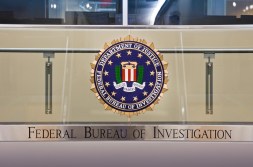FBI recommends no charges in Clinton email case, mystifying former intelligence officials
The FBI’s recommendation that presumptive democratic presidential contender Hillary Clinton should not face charges in connection with her use of personal email servers for official communications while she was secretary of State has some former counterintelligence officials up in arms and others mystified.
FBI Director James Comey’s statement Tuesday “defies understanding,” said Michelle Van Cleave, who served as national counterintelligence executive under former-President George W. Bush.
“He says ‘there is evidence of potential violations of the statutes regarding the handling of classified information.” If that is true, why wasn’t the case referred for prosecution? The way our legal system works, it is up to the Justice Department to decide whether or not to prosecute, not the FBI,” Van Cleave told FedScoop.
She added that Comey’s decision to offer and make public “his opinion about what a reasonable prosecutor would do is gratuitous — and therefore as political as it gets.”
Another former national counterintelligence executive, Joel Brenner, took a very different view.
“Director Comey’s conclusion was obvious to anybody who bothered to look dispassionately at the evidence: There was no crime here to prosecute,” he told FedScoop in a brief email.
In an unprecedented announcement that followed a nearly yearlong investigation, Comey said that, although Clinton and her staff had been “extremely careless in their handling of very sensitive highly classified information,” there was no evidence of intent to violate the law — and thus no case to prosecute.
The director added that although such recommendations were rarely made public, they were frequently transmitted to prosecutors by the FBI.
“Although there is evidence of potential violations of the statutes regarding the handling of classified information, our judgment is that no reasonable prosecutor would bring such a case,” Comey said.
That puzzled another former senior counterintelligence and law enforcement official, who asked for anonymity.
‘The statute doesn’t require intent,” said the former official, citing 18 U.S. Code u00a7 793, which states that anyone who “through gross negligence permits [national defense information] to be removed from its proper place of custody or delivered to anyone in violation of his trust” will be liable to a fine or imprisonment for up to 10 years.
Comey told reporters hastily summoned to the FBI building in downtown Washington, D.C., that “seven email chains [inspected by the FBI] concerned matters that were classified Top Secret/Special Access Program level at the time they were sent and received,” meaning they were among the most closely guarded secrets possessed by the U.S. government. Those email chains, Comey added, involved Clinton both sending and receiving email about the matters.
“There is evidence to support a conclusion that any reasonable person in Secretary Clinton’s position or in the position of those with whom she was corresponding … should have known that an unclassified system was no place for that conversation,’ Comey said.
“That is more than just carelessness. That is gross negligence,” said the anonymous former official.
The former official also referenced an email released by the State Department in January this year in which Clinton, apparently growing impatient with technical problems being experienced by staff trying to send a secure fax message, tells her aide Jake Sullivan, ‘If they can’t [send by secure fax], turn into nonpaper w no identifying heading and send nonsecure.’
Although it is unclear from the released email whether that actually happened or not, the former official observed that “it pretty clearly demonstrates intent” to get around legal restrictions on the handling of classified material.
Comey also slammed what he said was a lax security culture at the State Department more generally.
“The security culture of the State Department in general, and with respect to use of unclassified e-mail systems in particular, was generally lacking in the kind of care for classified information found elsewhere in the government,” he said.
Comey also addressed the vexed issue of whether foreign hackers might have gained access to the various servers and devices that Clinton had used over the years since 2009 to house and access her personal email domain.
“We did not find direct evidence” of a successful hack,” Comey said. “But given the nature of the system and of the actors potentially involved, we asses we would be unlikely to see such direct evidence.”
Comey noted that Clinton “also used her personal email extensively and regularly outside of the United States, including sending and receiving work-related email in the territory of sophisticated adversaries.”
Eric Miller, a nonresident fellow at the Stimson Center think tank, noted that this ran counter to most advice about cybersecurity for government and business executives traveling abroad.
“It’s hard to defend your systems if the leadership doesn’t embrace the culture and and practice of cybersecurity,” said Miller, the former chief cyber adviser to the Business Council of Canada.
“What kind of a signal does this send to the rest of the government workforce, who are entrusted with safeguarding national security information?” Van Cleave asked.
Foreign hackers had been inside the private commercial email accounts of many people “with whom Secretary Clinton was in regular contact from her personal account,” Comey said, adding: “We also assess that Secretary Clinton’s use of a personal email domain was both known by a large number of people and readily apparent.
“Given that combination of factors,” he concluded, “we assess it is possible that hostile actors gained access to Secretary Clinton’s personal email account.”
To many, that is more like a certainty than a possibility. U.S. counterintelligence doctrine generally requires agencies to assume compromise of any secret material exposed on unclassified systems.
“Now the Russians, the Chinese and a host of others have their hands on virtually all of the email correspondence of a secretary of state while in office, who now aspires to be president,” Van Cleave said.
“The insights they have into her — her family and friends, her decision-making, her circle of advisers — are invaluable … the damage assessments will be underway for some time,” she added.
“This is a failure of leadership in the first order — the secretary of state, for valuing her convenience over the nation’s security; President Obama, for endorsing her candidacy while the criminal investigation was ongoing; and now the director of the FBI, for failing to do his job,” Van Cleave concluded.



